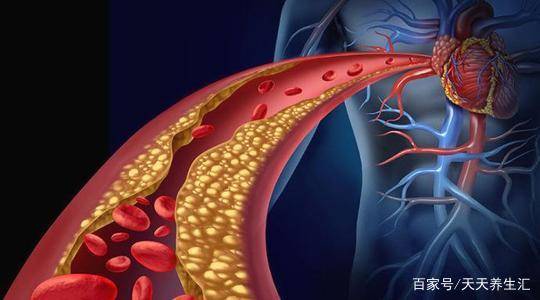8 major cholesterol-lowering foods, if consumed regularly, will make your blood vessels very “happy.”
As people age, the body’s metabolic and excretory functions decline. Excessive metabolic waste accumulates in the blood, causing it to become viscous. Combined with hardened blood vessels, this severely impacts blood flow, posing a threat to people’s health.
High blood fat, as one of the “three highs,” is a common chronic disease in the elderly and a trigger for many sudden diseases in middle-aged and elderly people. Therefore, in life, especially for middle-aged and elderly individuals, it is essential to develop good habits including but not limited to regular routines, proper exercise, healthy eating habits, maintaining an optimistic mindset, and more. Improved metabolic function is very beneficial in delaying aging and maintaining vascular function. Additionally, certain foods may better protect blood vessels, cleanse the blood of waste, and improve blood circulation.
8 major cholesterol-lowering foods:
1. Garlic
Specifically referring to garlic bulbs. Garlic, known for its spicy flavor, is commonly used in cooking, especially in Sichuan, Hunan cuisine, and is also consumed raw in the north. This spicy garlic can stimulate blood vessels, causing them to dilate, promoting blood circulation. It also has a cholesterol-lowering effect and regular consumption can help clean the blood vessels, enhancing blood flow. Hence, garlic is also known as the “golden medicinal plant.”
2. Onions
The saying “peel onions and I’ll cry” refers to cutting onions. Onions are one of the very few vegetables that contain prostaglandin A, a strong vasodilator that softens blood vessels, reduces blood viscosity, and promotes the excretion of substances like sodium in the blood. Especially for middle-aged and elderly individuals, incorporating onions into the diet can be beneficial.
3. Seaweed
In the past, people used to eat seaweed because table salt didn’t contain iodine then. Seaweed is rich in iodized salt and magnesium. It plays a role in preventing arterial lipid deposition, so consuming it regularly is beneficial for blood vessels.
4. Vegetable Oil
For middle-aged and elderly individuals, maintaining a low-fat diet is beneficial for vascular health. However, avoiding oil completely in cooking can compromise taste. Vegetable oils, primarily unsaturated fats, are easier to metabolize compared to animal fats. Therefore, using vegetable oil instead of animal fats for cooking is a good practice. Additionally, reducing fast food and fried food intake can control fat levels and keep blood vessels “happier.”
5. Cauliflower
There are two types of cauliflower, white cauliflower, and broccoli, with similar nutritional values. Cauliflower is low in calories, high in dietary fiber, and rich in vitamins and minerals. It’s also rich in flavonoids, which are good for blood vessel cleansing. Thus, regular consumption of cauliflower is beneficial.
6. Bitter Gourd
Bitter melon has a bitter taste and contains a good amount of bitter melon glycosides that can stimulate insulin release. It is rich in vitamin B1, vitamin C, and various minerals, making it a good food for weight control and overall health for middle-aged and elderly individuals.
7. Bean Sprouts
Spring is the best time to consume bean sprouts. Green beans themselves are cholesterol-lowering foods, and during the sprouting process, the vitamin C content can reach six to seven times that of the original green beans. The high vitamin C content is beneficial for improving metabolic function.
8. Apples
Apples are known as “cholesterol-lowering fruits” due to their rich pectin content, a water-soluble dietary fiber that binds with bile acids, absorbs excess cholesterol and triglycerides, and helps eliminate them from the body.
Of course, it is essential to always maintain a balanced diet. In daily life, consuming a variety of foods is necessary to help the body absorb various essential nutrients. Avoid picky eating or biased diets, and strive for a balanced diet. Japanese nutritionists recommend consuming over 30 different kinds of food daily, and the foods mentioned above are just a reference. Plan your diet sensibly.


